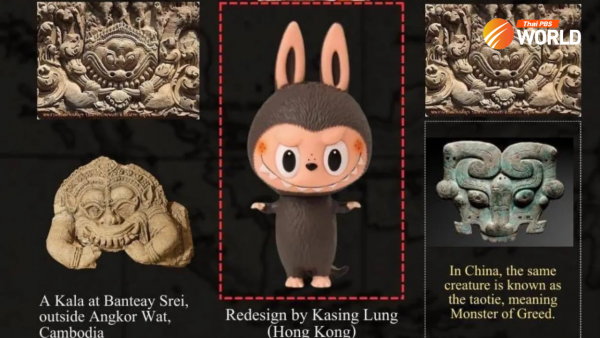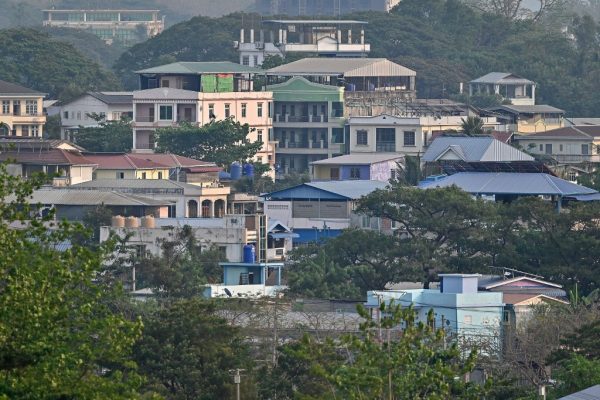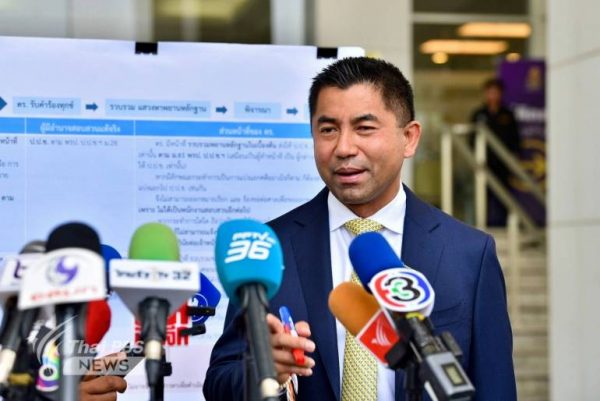‘Loyal Thai’ Warong ready to fight ‘nation-haters’

Warong Dechgitvigrom is best remembered for his crucial role in exposing corruption in the rice-pledging scheme of the Yingluck government. And now the veteran politician is carving a niche for himself in leading a crusade against anti-government protesters and to protect the country’s most revered institution.
“Throughout my life, I have never heard of the monarchy bullying people or the nation. Yet, I have witnessed the people and the nation being harmed by politicians,” Warong said at last Wednesday’s launch of Thai Pakdee (Loyal Thai), comprising a group of about 200 royalists who believe the monarchy is under attack.
“The father of the country is being harassed … How can Thai people stand by?” Warong said, urging fellow citizens to join his group.
His move follows the almost daily student-led protests since mid-July that are calling for dissolution of Parliament, a new Constitution, and an end to harassment of activists. Thai Pakdee has countered these calls with three demands of its own – no dissolution of Parliament, maximum legal action against anyone who seeks to topple the monarchy, and no change to the Constitution except via the proper channels.
Thai Pakdee is the fourth group of conservative pro-royalists created to counter the students’ reform push. The three others, including current and former vocational students, were set up amid anti-establishment rallies last month.
“When I was president of Chiang Mai University Student Union, I once wanted to overthrow the monarchy like you, brothers and sisters. But the masterminds were senior students linked with the Communist Party of Thailand,” the 59-year-old politician said in a Facebook post on August 15, one day before more than 10,000 people joined an anti-government protest at Bangkok’s Democracy Monument for the largest demonstration since the 2014 coup.
“While you [student activists] use social media to release fake news to incite protest, scriptwriters are preparing speeches for the protest leaders,” he continued.
Concern is mounting over possible violent clashes between right-wing groups and youth-led protesters in a Kingdom where polarisation between the ruling establishment and Thais seeking change has deepened since the end of junta rule last year.
Many observers fear a repeat of violence in 1976, when protests were crushed and dozens of student activists killed after right-wing politicians accused them of being disloyal to the monarchy.
Warong is known for his pro-royalist and ultra-nationalist opinions. Late last year, he made headlines by trying to launch a campaign against what he called a cult of “Chung Chart” or “nation-haters”. The term is used by ardent supporters of the monarchy and military to label anyone they see as a threat.
He even pushed for an “Anti-Patriotism Act” to punish those he deemed nation-haters. He defined “nation-haters” as those who do not adhere to the monarchy or religion, look down on their own culture and traditions, invite foreign powers to meddle in Thai affairs and refuse to accept justice.
“Chung Chart” has emerged as a term of abuse for the now-defunct Future Forward Party. Before being dissolved by a Constitutional Court order for illegal funding by its leader, the party was frequently branded as a “nation-hater” by conservatives for its pledges to change the existing political, economic and social structure through a push for equality, decentralisation and modernisation.
However, Warong’s campaign move was shunned by his opponents, including fellow Democrats, who feared that it could deepen national divisions and ignite another round of political conflict.
Colourful political career
Warong, a three-time former Democrat MP for Phitsanulok, shot to fame for exposing irregularities in the controversial rice-pledging scheme of the Yingluck Shinawatra government when his former Democrat Party was in the opposition.
He caught the politics bug while studying medicine at Chiang Mai University, where he set up a party to contest student union elections.
Before entering politics, he was a gynaecologist and served with the Public Health Ministry as director of hospitals in Nong Khai and deputy director of a hospital in Phitsanulok province.
His political career began when he joined the Thai Rak Thai Party founded by former prime minister Thaksin Shinawatra, but quit after being denied a chance to run for Parliament in Phitsanulok in 2004.
He then switched to the opposition Democrat Party, winning an election the following year in Phitsanulok, much to the dismay of Thai Rak Thai. He was re-elected in 2007 and 2011, but lost to a Future Forward candidate in March 2019 election.
In 2018, Warong emerged to challenge Abhisit Vejjajiva for the post of Democrat Party leader, but lost. Warong was the nominee of former party secretary-general Suthep Thaugsuban, who tried and failed to convince Abhisit and the Democrat leadership to back coup leader Prayut Chan-o-cha as next prime minister.
Warong resigned from the country’s oldest political party in November last year, citing a sea change in the political landscape, and joined the Action Coalition for Thailand (ACT), co-founded by “Bangkok Shutdown” firebrand-protest leader Suthep.
“In the past, we fought policy corruption in the Thaksin regime and the Yingluck regime and her rice-pledging programme. But today, attempts are being made to instil dangerous beliefs in the new generation, which I would call ‘Chung Chart’,” Warong said when he joined the ACT.
However, his passion to combat the “nation-haters” soon outgrew his new party allegiance.
He resigned from the ACT in June this year to pursue his campaign with the Thai Pakdee group, because he claimed it was difficult to find allies in his royalist crusade as the member of a political party.
By Thai PBS World’s Political Desk






